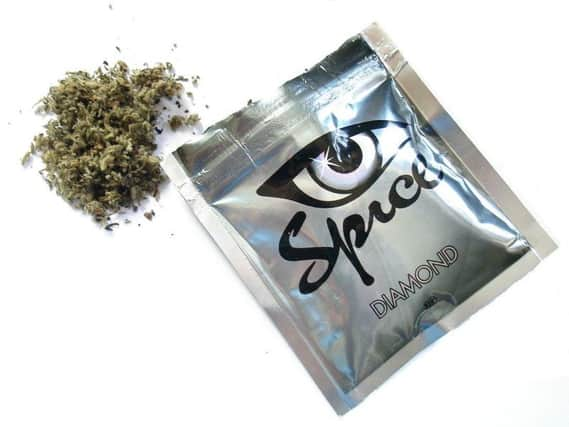What is former legal high Spice and why is dangerous?


It is often called ‘synthetic marijuana’ or ‘fake weed’ because some of the chemicals in it are similar to ones in marijuana but its effects are sometimes very different from marijuana, and frequently much stronger.
The substance, which like marijuana is smoked in cigarette papers, is made from dried plant material and chopped up herbs in a mixture of colours.
Advertisement
Hide AdAdvertisement
Hide AdThe active ingredients are sprayed onto the plant material. The ‘legal high’ first emerged in the UK in 2004.
At first, people believed Spice was simply a mixture of harmless herbs that had a similar effect to marijuana, so it was legally sold all over the world, especially via the internet.
It was attractively packaged in small colourful sachets, and generally marketed as a herbal smoking tobacco substitute, or as incense.
Spice can be sold as potpourri, room fragrance or incense, purporting to be an innocent product for scenting rooms and will usually have the warning, ‘not for human consumption’ on the packet.
Advertisement
Hide AdAdvertisement
Hide AdLast year the drug, along with similar substances, was reclassified as a Class B drug, giving ‘new psychoactive substances’ the same status as cannabis.
Spice and the law
Spice was criminalised last year and cases involving the drug are now beginning to be seen in Blackpool’s courts.
The latest case to be heard involved a man with two bags of vegetable like material one of which turned out to be Spice.
Graham Barrowman told police that the material in the other bag contained the herb Oregano and when analysed that turned out to be true.
Advertisement
Hide AdAdvertisement
Hide AdBarrowman, 38, of Regent Road, Blackpool, pleaded guilty to illegal possession of a class B drug and breaching bail.
He was given a 12-month conditional discharge and ordered to pay £125 costs with £20 victims’ surcharge by Blackpool magistrates who ordered the destruction of the drugs.
Mitch Sarangi, defending, said his client had used heroin for many years. He now had major problems with ulceration and infection of his leg and had occasionally resorted to other drugs for pain relief.
Help is available
Support is available for people in Blackpool struggling with substance abuse.
Advertisement
Hide AdAdvertisement
Hide AdIf you need help or know somebody who does Blackpool Council’s drug and alcohol service can help.
Call (01253) 205156 or (01253) 340104 to get in direct contact with the team.
Support can start straight away.
Read more about this: